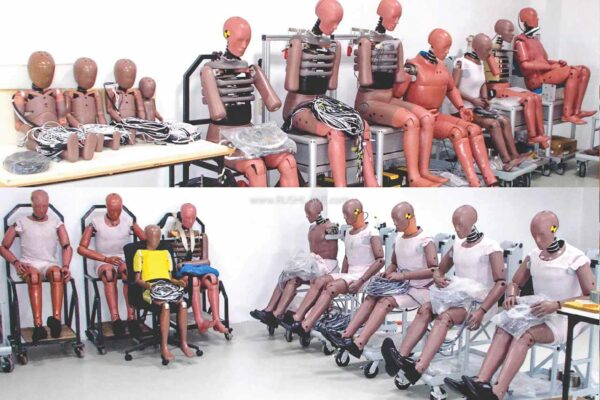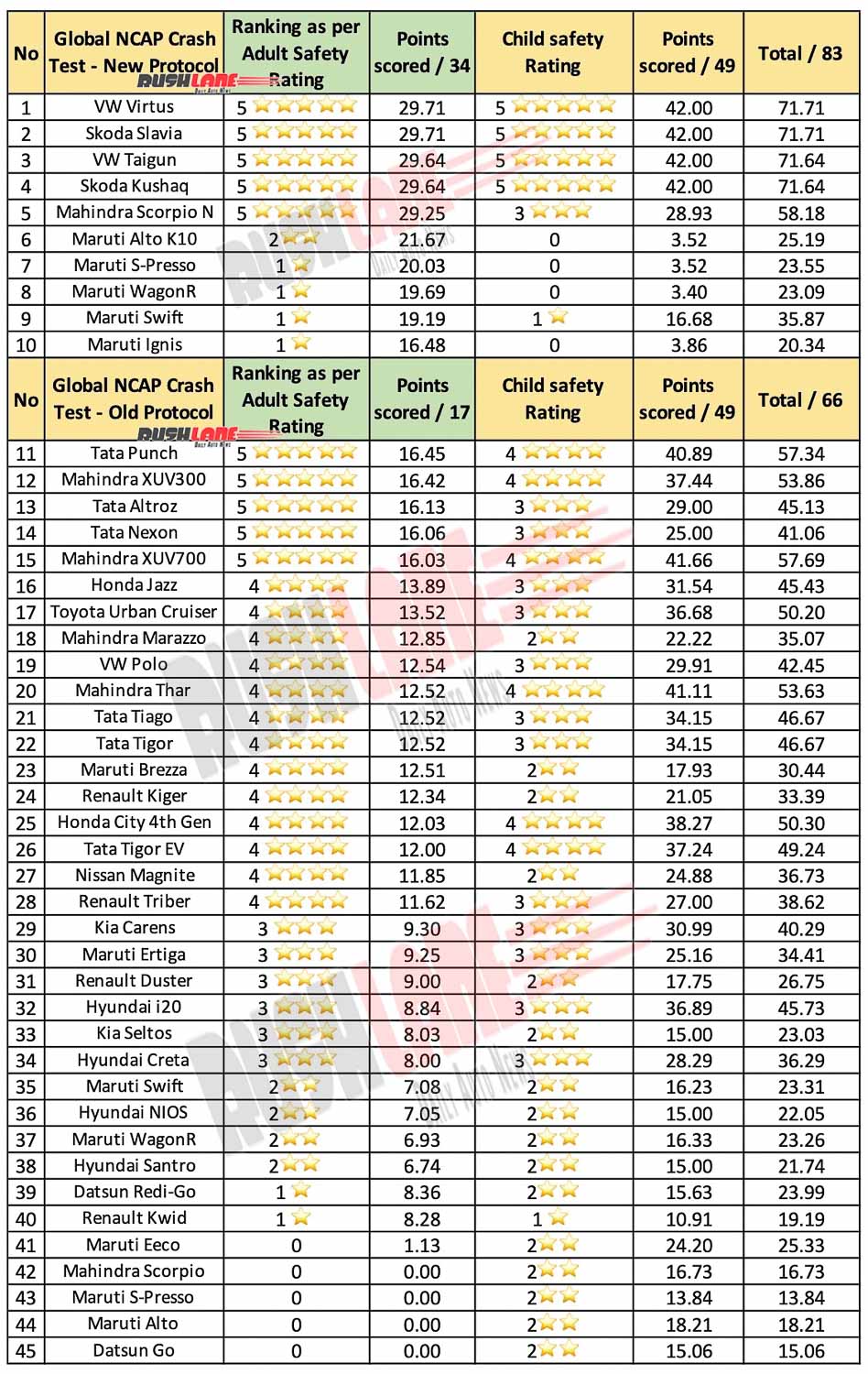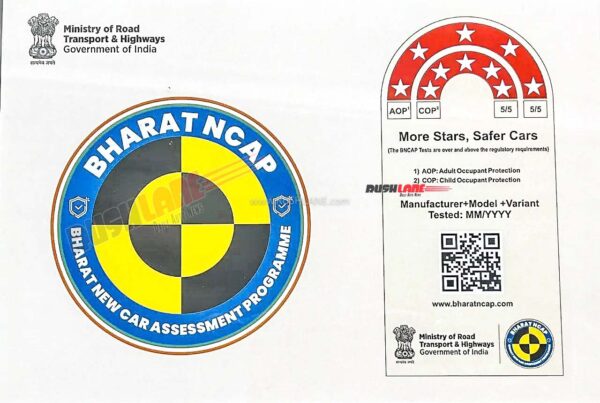
Global NCAP has about 10 Indian cars with them for crash test – After that, they will not test Indian cars
With the launch of Bharat NCAP, Global NCAP has decided to conclude its Safer Cars for India campaign by December 2023. The move comes as Global NCAP aligns its efforts with the newly launched Bharat NCAP, marking the 10th NCAP program globally. This strategic decision is aimed at eliminating any potential confusion among consumers and promoting a unified approach towards vehicle safety in India.
A Decade of Safer Cars for India
Global NCAP’s Safer Cars for India campaign, launched in 2013, has been pivotal in raising awareness and advocating for safer vehicles on Indian roads. Over the past decade, the campaign has subjected more than 50 models to rigorous crash tests, with 62 tests conducted in total. The focus has always been on evaluating the build quality and safety features of India-made passenger vehicles.

However, as the Bharat NCAP gains momentum and prepares for its official launch in October, Global NCAP has made the strategic decision to conclude its Safer Cars for India campaign by the end of this year. This decision reflects Global NCAP’s commitment to supporting and collaborating with the newly established Bharat NCAP, rather than competing with it. David Ward from Global NCAP said, “We absolutely don’t want to be seen as a rival programme to Bharat NCAP.”
A Collaborative Approach for Bharat NCAP
To facilitate this transition, Global NCAP has signed a Memorandum of Understanding (MoU) with the Central Institute for Road Transport (CIRT), which serves as the technical secretariat to the Ministry of Road Transport and Highways (MoRTH). This MoU establishes a framework of cooperation similar to the relationships Global NCAP maintains with other NCAP programs worldwide.

Under this MoU, Global NCAP will offer technical support based on its extensive experience gained over the past decade of vehicle testing. This support includes sharing Standard Operating Procedures (SoPs), best practices, and technical insights. It also covers guidance on the selection of vehicles for testing, inspection of tests, and communication strategies for sharing test results. Additionally, the MoU addresses the critical issue of the responsible use of test results by vehicle manufacturers in their advertisements, aiming to prevent any potential misuse of safety ratings.
India’s NCAP Journey
David Ward, Executive President of Global NCAP, commends India’s remarkable progress in the field of NCAP testing. He notes that the Indian process has been relatively swift and effective compared to the European counterpart. This speaks to the commitment and cooperation demonstrated by the Indian automotive industry and regulatory authorities.
While discussions surrounding regulations and their impact on affordability have persisted, the launch of Bharat NCAP is seen as a significant step forward in enhancing vehicle safety standards in India. Union Minister Nitin Gadkari emphasized the importance of both cost and quality, highlighting that consumers are increasingly concerned about vehicle safety.
Car makers in India have embraced the Bharat NCAP initiative, with over 30 models from various manufacturers lined up for testing. The development of Bharat NCAP began in 2011, and it has taken over a decade to come to fruition. With the support of Global NCAP and its wealth of experience, India-made vehicles are expected to achieve higher safety standards and greater acceptance in global markets.

